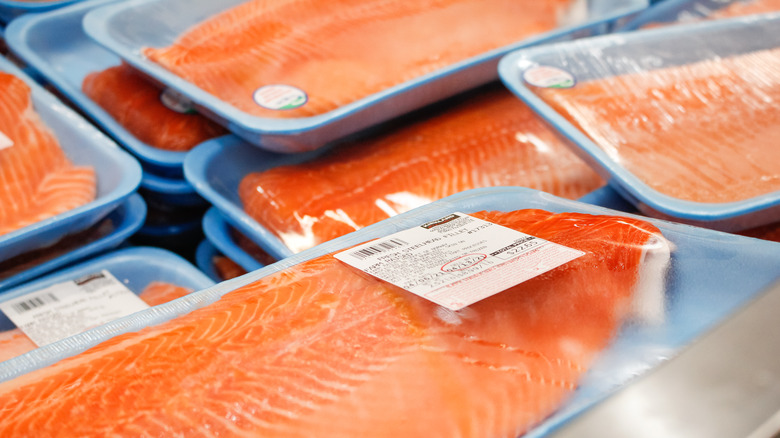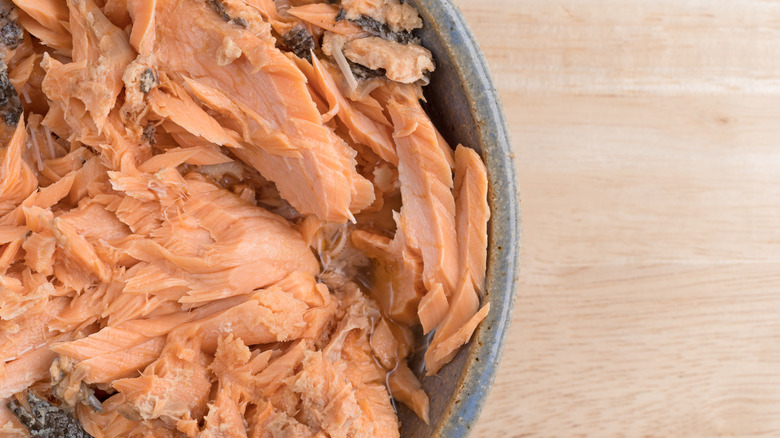When Buying Salmon, Opt For Wild-Caught Over Farm-Raised
Sometimes it can feel like a part-time job trying to find food you feel comfortable eating. Even if most of us don't fully understand what's in our food or how to distinguish genuinely healthy food from good marketing, we want to be eating in a way that fills our nutritional needs. Salmon is a great way to bulk up on protein, a fantastic source of healthy omega fat, and offers a variety of vitamins and minerals your body needs.
Fish farming, known as aquaculture, dates back thousands of years to around 4,000 BC in China. Salmon farming, however, didn't start until the 1960s and wasn't commercially viable until the 1980s. Since then, roughly half of all salmon consumed around the world has become farm-raised. But just as with factory farms that produce beef or chicken, there are unanswered questions about the health effects of eating farm-raised salmon versus wild-caught salmon.
In addition to wild-caught salmon tending to taste better, it is slightly higher in protein, has nearly triple the amount of iron, and roughly four times as much calcium. Across the board, wild-caught salmon is more nutrient-dense except for its fat content, which is about a third of that of its farm-raised counterpart. Since the fats are healthy polyunsaturated omega-3 and omega-6 fats, reasonable minds may differ on whether the higher fat content is better or worse.
What about canned salmon?
The answer is complicated but there are some fairly obvious differences we can point to. The most obvious reason is that wild-caught salmon are eating a wide variety of natural foods such as invertebrates, while farm-raised salmon are fed processed fish food. Since the nutritional composition of the fish is a direct result of what the fish is eating, it only makes sense that poorer quality food would lead to a nutrient-poor product.
Something else to keep in mind about farm-raised salmon is that they are often fed an unsettling amount of antibiotics to counteract the risk of disease that is inherent in an environment that keeps animals in such close proximity. When you consume farm-raised salmon you are then ingesting trace amounts of antibiotics, which can have a plethora of negative health consequences on your immune system and gut microbiome.
The main drawback of eating wild-caught salmon is that it is more expensive than farm-raised varieties. One way to counteract this is by purchasing canned salmon, which has the same nutritional benefits as fresh salmon. We have a natural hesitancy towards canned goods, but in the case of salmon, you're getting the same nutritional value. The only thing to watch out for is sodium content, which is usually higher in the canned version. Choose an option without salt added and you should be fine.

